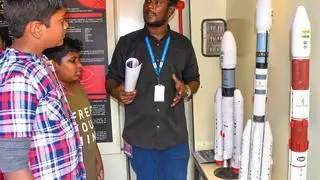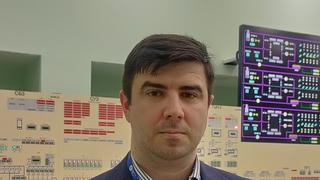The Hyderabad-based Centre for Cellular Molecular Biology (CCMB), which is one of the 38 research institutes under the Government of India’s Council for Scientific and Industrial Research (CSIR), is working on sequencing the whole genome of the Covid-19 virus taken from “isolates” from people who have tested positive.
The Centre’s Director, Dr Rakesh K Mishra, told BusinessLine that “large-scale genome sequencing will help us understand how similar or different Indian isolates are, compared with others.” (Genome is the genetic material of an organism, which consists of sets of DNA and/or RNA. Genome sequencing is the science of identifying the genome of the organism — like looking up its identity card.)
For this purpose, the Centre had sought samples from AIIMS, Delhi, two weeks ago.
The genome sequencing “will help us in understanding the mutation rate and possible routes of spread,” said Dr Mishra, who is one of India’s leading experts in genomics -- he also heads the Genome Organization and Nuclear Architecture Lab, at CCMB.
“Another activity to which we are all set is to culture the virus in human cell lines to address fundamental questions regarding this new virus,” Dr Mishra said. This, he said, would help understand the biology of the virus.”
In the meantime, CCMB is “building up capacity to test several hundred samples, scaleable to 1,000 samples a day,” Dr Mishra said.
IICB research into inhibitors
Another CSIR institute, the Kolkata-based Indian Institute of Chemical Biology, has also got into the act.
Dr Rupak Bhadra, Chief Scientist and Head, Infectious Diseases and Immunology Division, IICB, has told BusinessLine that two scientists in the division, Dr Subhajit Biswas and Dr Upasana Ray, have designed a research proposal to find “inhibitors” against the coronavirus’ proteins -- meaning, finding biochemicals that will prevent the coronavirus from gaining entry into human cells.
The two virologists are “planning to screen different natural products as inhibitors against the critical proteins of the (corona) virus with the help of scientists in the chemistry and structural biology divisions of IICB, Dr Bhadra said.
IICB, he said, was also helping the local hospitals by providing technical support as well as the RT-PCR machines. These machines are used to study gene expression, which is needed to diagnose genetic diseases and monitor drug therapy.
IICB gave one such machine to the Indian Army Hospital, Kolkata, on Wednesday. Dr Bhadra said that the institute is ready to provide “more such machines and technical support” as well as other chemicals and consumables needed for tests.
Wider effort sought
The CSIR, Dr Bhadra said, has asked all the institutions under its aegis to come up with research proposals to fight the coronavirus “on urgent basis”.
“We are in touch with different CSIR institutes and our headquarters on Covid-19-related matters and are ready for active participation,” he said.
The Centre for Infectious Disease Research (CIDR) of the Indian Institute of Science, Bengaluru, (which is not a part of CSIR) has put itself on stand-by mode. “We have written to ICMR of our willingness to extend a helping hand in carrying out the Covid-19 testing services using ICMR-approved commercial reagents and our facilities, Dr Kithiganahalli Narayanaswamy Balaji, Convenor of CIDR, told BusinessLine .
Meanwhile, news from research institutions abroad indicates that scientists globally are looking for solutions to the coronavirus from the universe of drugs already approved (in-use drugs), so as to find a quick cure, because developing a new vaccine and getting it approved is a long-drawn process.
In this connection, suggestions are coming to the effect that the time-tested drug for tuberculosis, BCG, could also prove effective against coronavirus. Asked about this, Dr Balaji said he felt that BCG’s “ability to regulate various arms of innate immunity will be of considerable interest”.







Comments
Comments have to be in English, and in full sentences. They cannot be abusive or personal. Please abide by our community guidelines for posting your comments.
We have migrated to a new commenting platform. If you are already a registered user of TheHindu Businessline and logged in, you may continue to engage with our articles. If you do not have an account please register and login to post comments. Users can access their older comments by logging into their accounts on Vuukle.